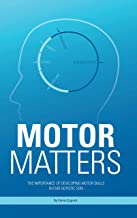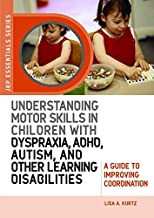Motor Disorders
Resources for Patients and Caregivers
Motor disorders are malfunctions of the nervous system that cause involuntary or uncontrollable movements or actions of the body. These disorders can cause lack of intended movement or an excess of involuntary movement.
Cluster Number:
Wiki Number: 29 Motor Disorders
Diagnosis:
US Patients:
World Patients:
Sex Ratio:
Age Onset:
Brain Area:
Symptoms:
Progression:
Causes:
Medications:
Therapies:
Youtube Video: Functional Movement Disorders: You’re not alone.
Amazon or Library Book: Motor Matters for . . Our Autistic Son
Amazon or Library Book: Understanding Motor Skills . .
Click the book to link or order from Amazon.
Click the book to link or order from Amazon.
Your content goes here. Edit or remove this text inline or in the module Content settings. You can also style every aspect of this content in the module Design settings and even apply custom CSS to this text in the module Advanced settings.


